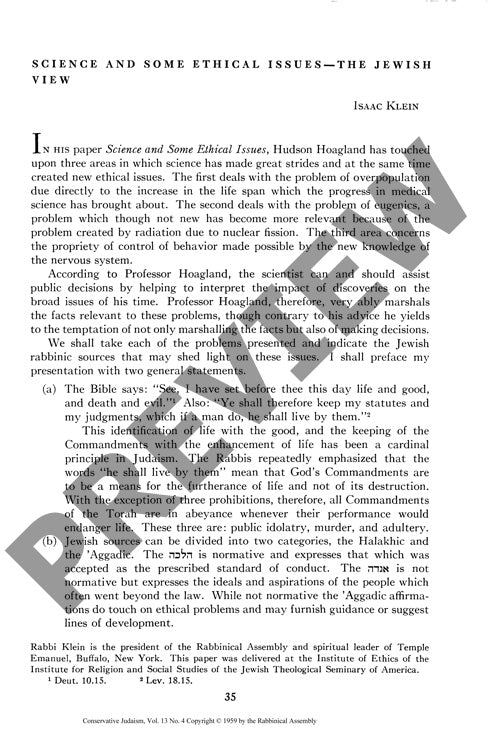Science and Some Ethical Issues the Jewi
Couldn't load pickup availability
Jewish religious tradition proves remarkably adaptable in addressing modern bioethical challenges, offering nuanced guidance on issues from contraception to artificial insemination. Through systematic analysis of Halakhic (normative Jewish law) and Aggadic (ethical-aspirational) sources, three pressing ethical dilemmas identified by Hudson Hoagland receive careful examination. The rabbinic framework permits contraception when pregnancy threatens maternal or fetal health, despite objections based on "unnaturalness." Similarly, female sterilization gains acceptance for therapeutic purposes and after fulfilling procreative duties, while male sterilization faces stricter limits except for health reasons. On artificial insemination, Jewish law distinguishes between using husband's semen (AIH) versus donor semen (AID) - accepting the former while raising concerns about the latter's implications for paternity and intermarriage, though notably not classifying it as adultery due to the absence of physical relations. Rather than positioning humans as passive recipients of divine will, Jewish tradition emerges as fundamentally supportive of medical intervention to preserve and enhance human life, viewing humans as co-creators with God. This analysis demonstrates how religious frameworks can provide ethical guidance for evaluating scientific advances while remaining open to beneficial applications of new knowledge.

More Information
-
Physical Description
-
Publication Information
Published 1959
ISBN
-
Publication Credits
Isaac Klein

